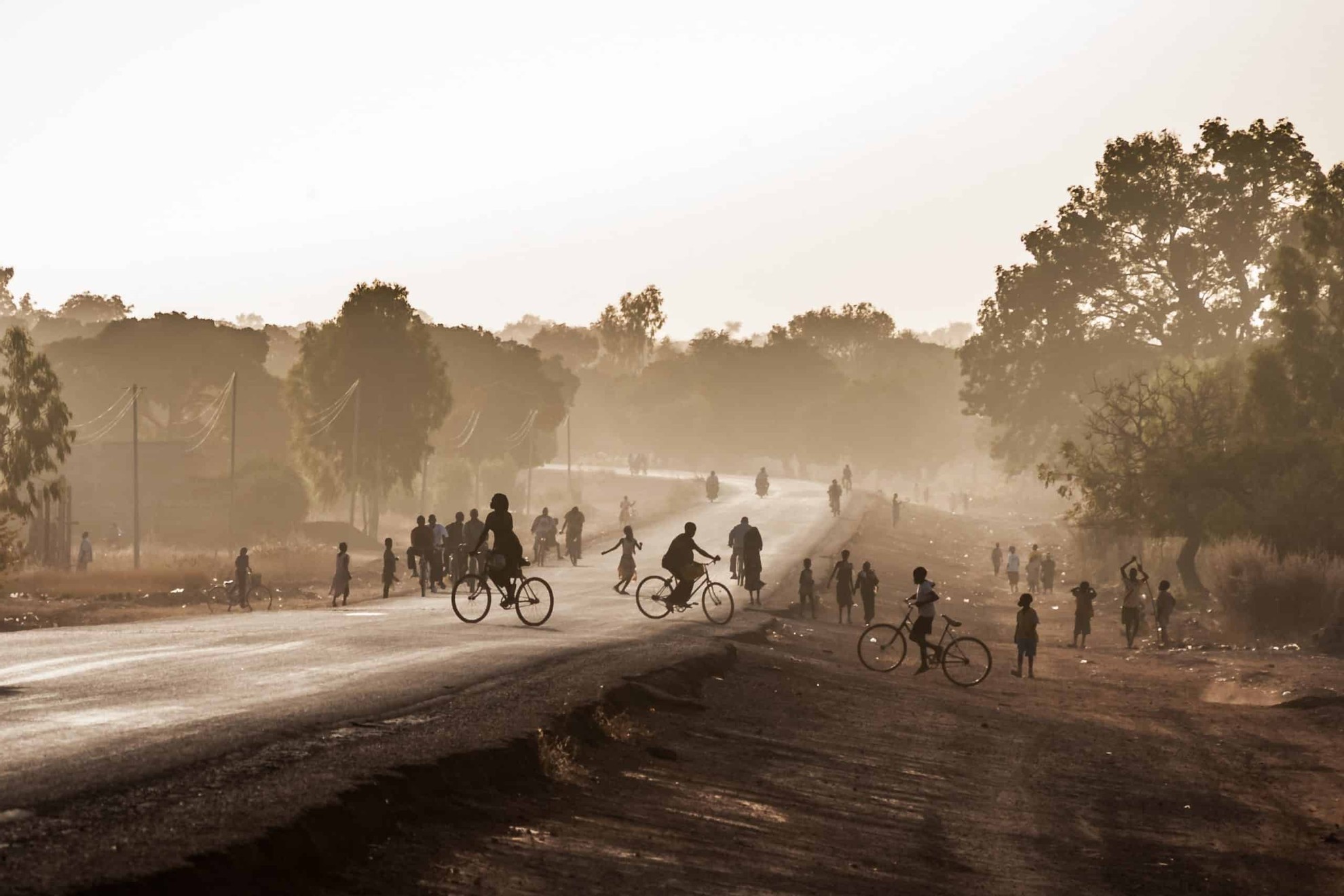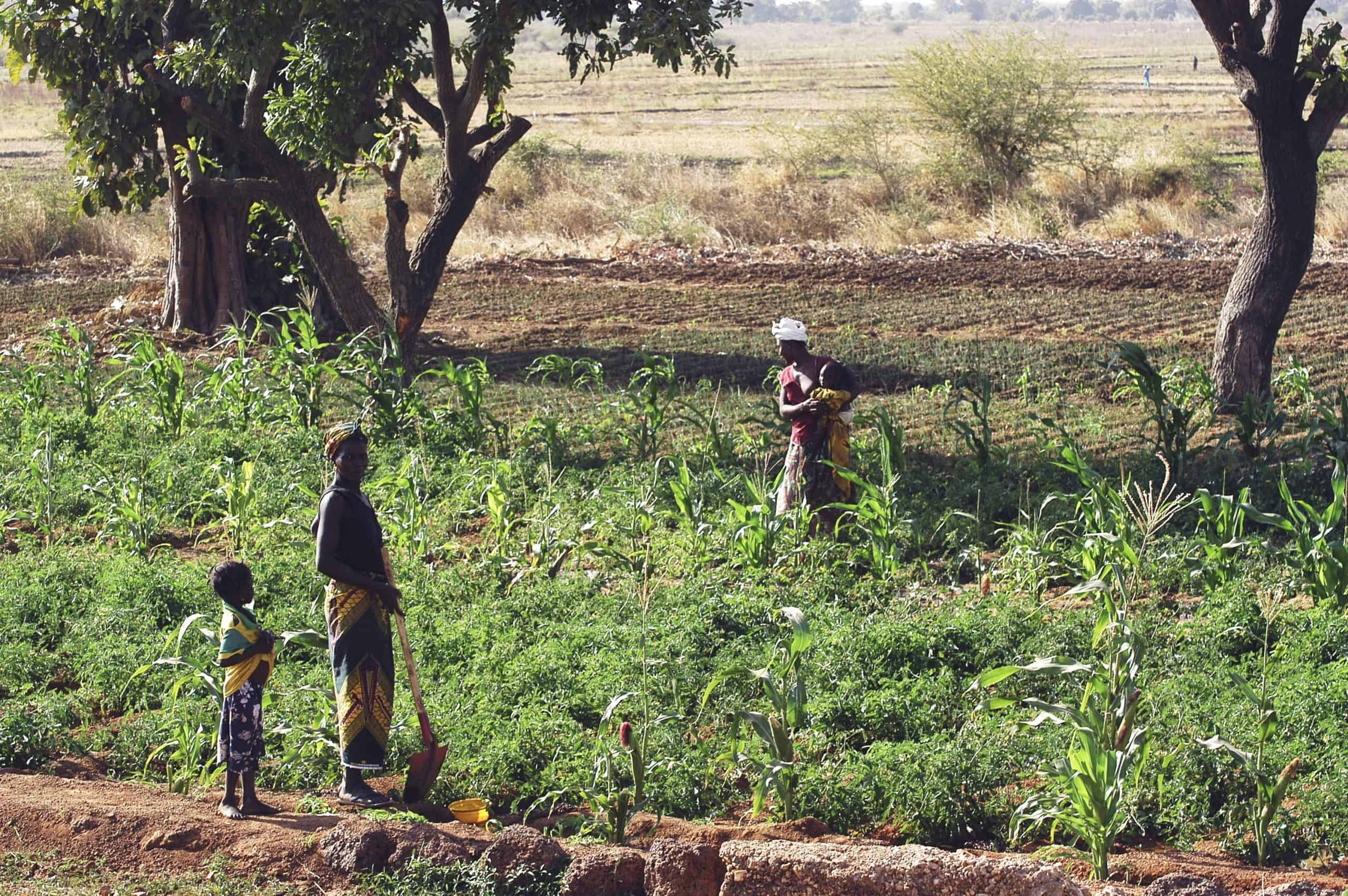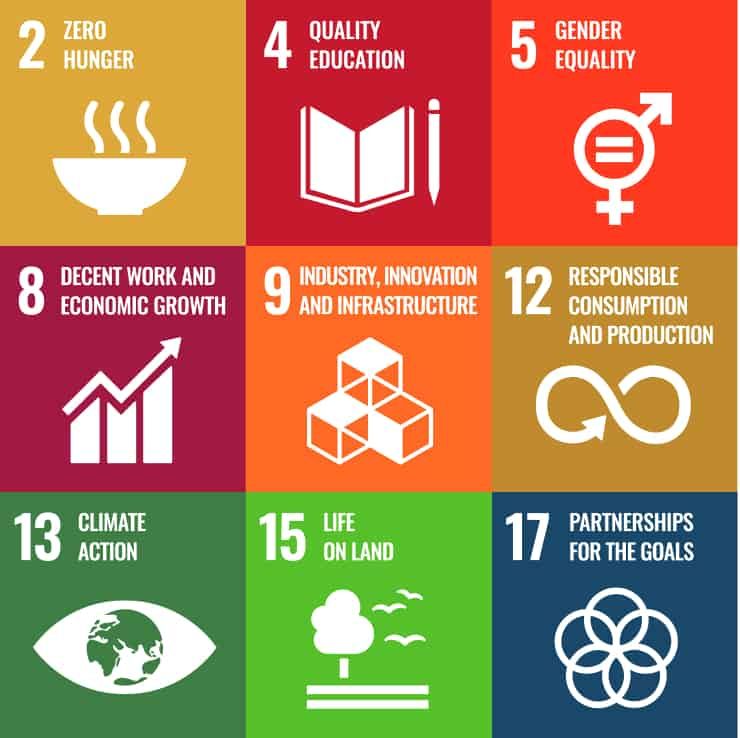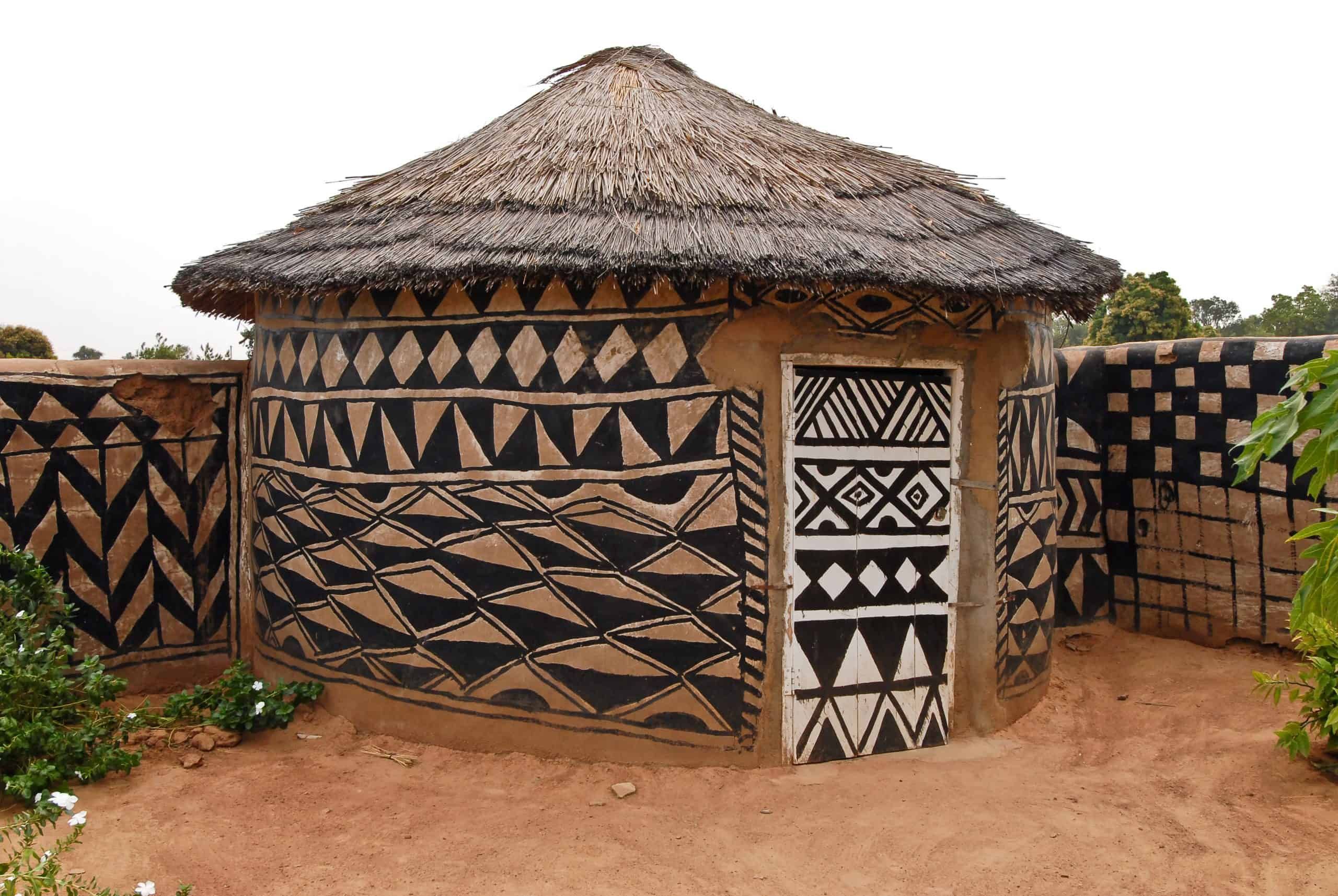Main Navigation
Burkina Faso
Overview
Burkina Faso’s National Green Economy Strategy serves as the backbone for the country’s green economy transition.
Burkina Faso has one of the lowest carbon emissions and ecological footprints in Sub-Saharan Africa. But, it faces challenges in the form of limited natural resources, high poverty levels and heavy reliance on agriculture.
In the face of these challenges, the Government has taken forward several national initiatives that highlight the country’s commitment to sustainable development. With climate change adaptation of high importance to the country, it was among the first globally to adopt a National Adaptation Plan.
Burkina Faso has one of the lowest carbon emissions and ecological footprints in Sub-Saharan Africa. But, it faces challenges in the form of limited natural resources, high poverty levels and heavy reliance on agriculture.
In the face of these challenges, the Government has taken forward several national initiatives that highlight the country’s commitment to sustainable development. With climate change adaptation of high importance to the country, it was among the first globally to adopt a National Adaptation Plan.
In 2014, PAGE was requested to support the development of a National Green Economy Strategy (Stratégie National de l’Economie Verte – SNEV) to serve as the backbone of the country’s transition to a green economy, as well as contribute to the National Plan for Economic and Social Development (PNDES 2016-2020). Several macroeconomic and sectoral assessments were conducted to inform the Strategy, including the Green Economy Assessment that identified priority sectors for green investment. Work has since been taken forward in several thematic and sectoral areas, including sustainable agriculture, green trade, green industry and green taxation.
PAGE began a gradual phase-out of support in 2019, completing the development of a sustainability plan to safeguard results and continue moving the green economy agenda forward.
Key achievements of the partnership include: the adoption of the SNEV; contributions to sectoral and thematic reforms in the areas of green trade, green industry, and sustainable agriculture; and the establishment of a green economy master’s degree programme and a pool of trainings for green entrepreneurship. Further, the country has created a model for the joint delivery of complementary UN initiatives, bringing together PAGE, the Poverty-Environment Action (PEA), and SWITCH Africa Green into one coherent programme aimed at greening the economy.
In 2020, the development of the country’s next national development plan for the period 2021-2025 (PNDES 2) provided a new entry point for PAGE to better mainstream Inclusive Green Economy (IGE) within sectoral strategies, building on the SNEV. PAGE will be supporting the ten sector budget programme coordinators established by the Government to green specific sectoral programmes.
Sustainable Development
The partnership between PAGE and Burkina Faso has contributed towards the achievement of several SDGs, including SDGs 2 (Zero Hunger), 4 (Quality Education), 5 (Gender Equality), 8 (Decent Work and Economic Growth), 9 (Industry, Innovation and Infrastructure), 12 (Responsible Consumption and Production), 13 (Climate Action), 15 (Life on Land) and 17 (Partnerships for the Goals).
COVID-19 and Green Recovery
With its approved proposal for additional support, PAGE will be supporting Burkina Faso’s green economic recovery through a focus on the design and implementation of fiscal measures for promoting sustainable recovery of the tourism sector. The work will reinforce the implementation of the National Strategy and Action Plan for Sustainable Tourism. Specifically, PAGE will help evaluate the impact of COVID-19 on business in the tourism sector to inform interventions that involve designing and implementing incentives and fiscal measures to support business recovery in the tourism sector; assessing ex-ante the impacts of different policy and incentive measure options through economic modelling; and establishing a monitoring and evaluation system to measure the progress of activities implemented in the framework of the National Strategy and Action Plan for Sustainable Tourism. In addition, PAGE will work with the government to institutionalize the use of economic modelling methodologies, as well as produce a communication plan to further disseminate information regarding the initiatives implemented to support the sustainable recovery of the tourism sector.
PAGE Milestones
- 2014
Burkina Faso joins PAGE
Green Economy Assessment developed
- 2015
Green Industry Assessment developed
- 2016
National Plan – PNDES 2016-2020 adopted
Green Economy Academy hosted in Ouagadougou with more than 200 participants
- 2017
Proposal for a new environmental tax developed
Five participants from Burkina Faso attended a training of trainers on green entrepreneurship in Senegal
- 2018
Green Economy Learning Needs Assessment and Action Plan completed
Implementation of second National Rural Sector Programme (PNSR 2) commences integrating green economy principles
Partnership established with national institutions to develop a green economy course programme
- 2019
Action Plan for Sustainable Management and Export of Non-Timber Forest Products (NTFPs) developed and adopted
National Industrial Strategy and Action Plan with a focus on greening Burkina Faso’s industry sector adopted
SNEV and supporting Action Plan adopted
Draft National Sustainability Strategy developed
Programme proposal to implement SNEV Action Plan submitted to technical government committee and donors
- 2020
National Development Plan (2021-2025 – PNDES 2) drafting process involving PAGE
Green entrepreneurship training held by Maison de l’Entreprise for nine women entrepreneurs
Three sub-regional exchange webinars for West Africa on green economy and climate change jointly by PAGE and UN CC:Learn
Adoption of document to support the implementation of the National Strategy on the Green Economy (SNEV) at national workshop
Workshop held to validate study on the impact of artisanal mining on sustainable agriculture
New President re-elected and elections for National Assembly held
Manual for Green Jobs developed
Virtual training workshop for government officials and NGO staff on the development of bankable projects
Progress in 2020: A Snapshot
Roll-out of National Green Economy Strategy
Following the formal adoption of the National Strategy on Green Economy (SNEV) in 2019, a project document to support its implementation […]
Following the formal adoption of the National Strategy on Green Economy (SNEV) in 2019, a project document to support its implementation was adopted on 27 October 2020, which includes an action plan for the SNEV and a sustainability plan for PAGE.
At the start of 2020, the government began formulating the next national development plan spanning 2021-2025 (PNDES 2). The Ministry of Environment engaged in this process to draft a sector contribution, and the PAGE National Coordinator served on its committee, namely, to support IGE mainstreaming within sectoral strategies (completed in April 2020). PAGE will organize coaching and training workshops in early 2021, to help the Sector Budget Programme Coordinators integrate green economy into their respective sector programmes.
Sustainable agriculture
Drawing on initial UNEP studies, PAGE completed a study on the impact of artisanal gold mining on sustainable agriculture in Burkina Faso. […]
Drawing on initial UNEP studies, PAGE completed a study on the impact of artisanal gold mining on sustainable agriculture in Burkina Faso. The study provides recommendations for government policy, institutional and legal reform in order to promote sustainable agriculture in a context of an anarchic development of gold panning in Burkina Faso.
Green entrepreneurship
In July 2020, PAGE facilitated a green entrepreneurship training to assist business owners in improving ecological standards by fostering the […]
In July 2020, PAGE facilitated a green entrepreneurship training to assist business owners in improving ecological standards by fostering the greening of their businesses. The training was delivered by the Maison de l’Entreprise du Burkina Faso (MEB), with nine female participants — entrepreneurs working within local agriculture, non-timber forest product (NTFP) processing and sustainable trade. This particular training informs the development of a coaching package for small and medium-sized enterprises (SMEs) to green their businesses. In line with this, a ‘Manual for Green Jobs Creation’, was developed in November 2020.
Capacity development for resource mobilization
PAGE supported a virtual workshop from 16-18 December to train government officials from various ministries, as well as NGO staff, in the […]
PAGE supported a virtual workshop from 16-18 December to train government officials from various ministries, as well as NGO staff, in the development of bankable projects, which could attract climate funding. The training was led by UNEP and attended by 17 participants, with plans to continue with additional trainings in early 2021.
Facilitating sub-regional exchange on green economy and climate change
PAGE Burkina Faso and PAGE Senegal have been engaged in South-South cooperation, collaborating with UN CC:Learn to support […]
PAGE is collaborating with the West African Regional Learning Platform on Climate Change, a programme initiated by UN CC:Learn in partnership with the Agrhymet Regional Centre. The platform facilitates experience sharing, training and dialogue between countries and institutions in the region on learning on inclusive green economy and climate change. Activities include webinars, expert debates, training and the development of learning materials adapted to the context of the region, helping to strengthen synergies and collaboration.
Through this platform, Burkina Faso shared experiences on IGE policy development and capacity building with other countries and institutions in the region. PAGE Burkina Faso hosted the first webinar in August 2020, followed by two other webinars. The webinars enabled Burkina Faso, as well as Senegal, Togo, and Mali, to present their experiences, including case studies, success stories and learning resources developed in their respective countries. Representatives of other countries from the region also participated in the webinars, bringing in their own experiences, asking questions and learning from each other. The webinars provided a platform for ENA to present the series of green economy modules developed in collaboration with PAGE. Further activities such as the launch of regional debates and radio programmes on climate change and IGE are planned from January 2021 onwards.




